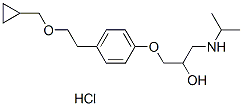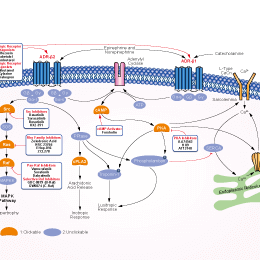
- Bioactive Compounds
- By Signaling Pathways
- PI3K/Akt/mTOR
- Epigenetics
- Methylation
- Immunology & Inflammation
- Protein Tyrosine Kinase
- Angiogenesis
- Apoptosis
- Autophagy
- ER stress & UPR
- JAK/STAT
- MAPK
- Cytoskeletal Signaling
- Cell Cycle
- TGF-beta/Smad
- DNA Damage/DNA Repair
- Compound Libraries
- Popular Compound Libraries
- Customize Library
- Clinical and FDA-approved Related
- Bioactive Compound Libraries
- Inhibitor Related
- Natural Product Related
- Metabolism Related
- Cell Death Related
- By Signaling Pathway
- By Disease
- Anti-infection and Antiviral Related
- Neuronal and Immunology Related
- Fragment and Covalent Related
- FDA-approved Drug Library
- FDA-approved & Passed Phase I Drug Library
- Preclinical/Clinical Compound Library
- Bioactive Compound Library-I
- Bioactive Compound Library-Ⅱ
- Kinase Inhibitor Library
- Express-Pick Library
- Natural Product Library
- Human Endogenous Metabolite Compound Library
- Alkaloid Compound LibraryNew
- Angiogenesis Related compound Library
- Anti-Aging Compound Library
- Anti-alzheimer Disease Compound Library
- Antibiotics compound Library
- Anti-cancer Compound Library
- Anti-cancer Compound Library-Ⅱ
- Anti-cancer Metabolism Compound Library
- Anti-Cardiovascular Disease Compound Library
- Anti-diabetic Compound Library
- Anti-infection Compound Library
- Antioxidant Compound Library
- Anti-parasitic Compound Library
- Antiviral Compound Library
- Apoptosis Compound Library
- Autophagy Compound Library
- Calcium Channel Blocker LibraryNew
- Cambridge Cancer Compound Library
- Carbohydrate Metabolism Compound LibraryNew
- Cell Cycle compound library
- CNS-Penetrant Compound Library
- Covalent Inhibitor Library
- Cytokine Inhibitor LibraryNew
- Cytoskeletal Signaling Pathway Compound Library
- DNA Damage/DNA Repair compound Library
- Drug-like Compound Library
- Endoplasmic Reticulum Stress Compound Library
- Epigenetics Compound Library
- Exosome Secretion Related Compound LibraryNew
- FDA-approved Anticancer Drug LibraryNew
- Ferroptosis Compound Library
- Flavonoid Compound Library
- Fragment Library
- Glutamine Metabolism Compound Library
- Glycolysis Compound Library
- GPCR Compound Library
- Gut Microbial Metabolite Library
- HIF-1 Signaling Pathway Compound Library
- Highly Selective Inhibitor Library
- Histone modification compound library
- HTS Library for Drug Discovery
- Human Hormone Related Compound LibraryNew
- Human Transcription Factor Compound LibraryNew
- Immunology/Inflammation Compound Library
- Inhibitor Library
- Ion Channel Ligand Library
- JAK/STAT compound library
- Lipid Metabolism Compound LibraryNew
- Macrocyclic Compound Library
- MAPK Inhibitor Library
- Medicine Food Homology Compound Library
- Metabolism Compound Library
- Methylation Compound Library
- Mouse Metabolite Compound LibraryNew
- Natural Organic Compound Library
- Neuronal Signaling Compound Library
- NF-κB Signaling Compound Library
- Nucleoside Analogue Library
- Obesity Compound Library
- Oxidative Stress Compound LibraryNew
- Plant Extract Library
- Phenotypic Screening Library
- PI3K/Akt Inhibitor Library
- Protease Inhibitor Library
- Protein-protein Interaction Inhibitor Library
- Pyroptosis Compound Library
- Small Molecule Immuno-Oncology Compound Library
- Mitochondria-Targeted Compound LibraryNew
- Stem Cell Differentiation Compound LibraryNew
- Stem Cell Signaling Compound Library
- Natural Phenol Compound LibraryNew
- Natural Terpenoid Compound LibraryNew
- TGF-beta/Smad compound library
- Traditional Chinese Medicine Library
- Tyrosine Kinase Inhibitor Library
- Ubiquitination Compound Library
-
Cherry Picking
You can personalize your library with chemicals from within Selleck's inventory. Build the right library for your research endeavors by choosing from compounds in all of our available libraries.
Please contact us at [email protected] to customize your library.
You could select:
- Antibodies
- Bioreagents
- qPCR
- 2x SYBR Green qPCR Master Mix
- 2x SYBR Green qPCR Master Mix(Low ROX)
- 2x SYBR Green qPCR Master Mix(High ROX)
- Protein Assay
- Protein A/G Magnetic Beads for IP
- Anti-Flag magnetic beads
- Anti-Flag Affinity Gel
- Anti-Myc magnetic beads
- Anti-HA magnetic beads
- Magnetic Separator
- Poly DYKDDDDK Tag Peptide lyophilized powder
- Protease Inhibitor Cocktail
- Protease Inhibitor Cocktail (EDTA-Free, 100X in DMSO)
- Phosphatase Inhibitor Cocktail (2 Tubes, 100X)
- Cell Biology
- Cell Counting Kit-8 (CCK-8)
- Animal Experiment
- Mouse Direct PCR Kit (For Genotyping)
- New Products
- Contact Us
Betaxolol HCl
Synonyms: SL 75212 HCl
Betaxolol (SL 75212) is a β1 adrenergic receptor blocker with IC50 of 6 μM.

Betaxolol HCl Chemical Structure
CAS No. 63659-19-8
Purity & Quality Control
Batch:
Purity:
99.46%
99.46
Betaxolol HCl Related Products
| Related Targets | α-adrenergic receptor β-adrenergic receptor Beta-Adrenergic Receptor | Click to Expand |
|---|---|---|
| Related Products | Zenidolol (ICI-118551) Hydrochloride Yohimbine HCl L755507 Atipamezole Higenamine hydrochloride Fenoterol hydrobromide Medetomidine HCl Rauwolscine hydrochloride Deoxycorticosterone acetate Detomidine HCl Naftopidil | Click to Expand |
| Related Compound Libraries | FDA-approved Drug Library Natural Product Library Neuronal Signaling Compound Library CNS-Penetrant Compound Library Anti-alzheimer Disease Compound Library | Click to Expand |
Signaling Pathway
Biological Activity
| Description | Betaxolol (SL 75212) is a β1 adrenergic receptor blocker with IC50 of 6 μM. | ||
|---|---|---|---|
| Targets |
|
| In vitro | ||||
| In vitro | Betaxolol is able to protect retinal neurones. [2] Betaxolol attenuates the NMDA-induced influx of 45Ca2+ while β-adrenoreceptor agonists are ineffective. [3] The glutamate-induced release of LDH is almost completely prevented when betaxolol (10 μM) is included. [4] Betaxolol (100 μM) is very effective in preventing the hypoxia-induced release of LDH from cortical cultures. [5] | |||
|---|---|---|---|---|
| Cell Research | Cell lines | Dissociated rat cortical cells | ||
| Concentrations | 100 μM | |||
| Incubation Time | 4 hours | |||
| Method | Dissociated cortical cells from 16–18-day-old fetal rats are grown, in 35 mm dishes, in DMEM supplemented with L-glutamine (4 mM), glucose (6 g/L), penicillin (100 U/mL), streptomycin (100 μg/mL) and 10% hormonal supplemented medium consisting of transferrin (1 mg/mL), insulin (250 μg/mL) putrescine (600 μM), sodium selenite (0.3 μM), progesterone (0.2 μM) and estradiol (0.1 pM) for 7 days in an atmosphere of 5% CO2/95% O2 at 37 °C. The cultures are then transferred to a culture medium which lacks the hormonal supplemented medium. L-glutamate is added to the medium and incubated for a further 4 hours under normoxic conditions. Betaxolol are added to the cultures at the same time as L-glutamate. In other experiments the cultures are subjected to anoxic conditions, 95% N2/5% CO2, for 5 hours at 37 °C. Betaxolol is added prior to anoxia. Reoxygenation is then achieved by replacing the cells in normoxic conditions (95% O2/5% CO2) for 3 hours. Cellular injury is assessed by measuring lactate dehydrogenase (LDH) release into the cell culture supernatant after hypoxia/reoxygenation or glutamate exposure. LDH activity is assayed spectrophotometrically by following NADH metabolism for 2 minutes at 340 nm. | |||
| In Vivo | ||
| In vivo | When Betaxolol is injected i.p. into the rats before ischaemia and on the days of reperfusion the changes to the calretinin and ChAT immunoreactivities are reduced and the reduction of the b-wave is prevented. Inclusion of betaxolol partially prevents the changes caused by NMDA and lack of oxygen/glucose. [5] | |
|---|---|---|
| Animal Research | Animal Models | Rat wiht ischaemia |
| Dosages | 2.5 mg/kg | |
| Administration | Administered via i.p. | |
Chemical Information & Solubility
| Molecular Weight | 343.89 | Formula | C18H29NO3.HCl |
| CAS No. | 63659-19-8 | SDF | Download Betaxolol HCl SDF |
| Smiles | CC(C)NCC(COC1=CC=C(C=C1)CCOCC2CC2)O.Cl | ||
| Storage (From the date of receipt) | |||
|
In vitro |
DMSO : 69 mg/mL ( (200.64 mM) Moisture-absorbing DMSO reduces solubility. Please use fresh DMSO.) Water : 69 mg/mL Ethanol : 69 mg/mL |
Molecular Weight Calculator |
|
In vivo Add solvents to the product individually and in order. |
In vivo Formulation Calculator |
||||
Preparing Stock Solutions
Molarity Calculator
In vivo Formulation Calculator (Clear solution)
Step 1: Enter information below (Recommended: An additional animal making an allowance for loss during the experiment)
mg/kg
g
μL
Step 2: Enter the in vivo formulation (This is only the calculator, not formulation. Please contact us first if there is no in vivo formulation at the solubility Section.)
% DMSO
%
% Tween 80
% ddH2O
%DMSO
%
Calculation results:
Working concentration: mg/ml;
Method for preparing DMSO master liquid: mg drug pre-dissolved in μL DMSO ( Master liquid concentration mg/mL, Please contact us first if the concentration exceeds the DMSO solubility of the batch of drug. )
Method for preparing in vivo formulation: Take μL DMSO master liquid, next addμL PEG300, mix and clarify, next addμL Tween 80, mix and clarify, next add μL ddH2O, mix and clarify.
Method for preparing in vivo formulation: Take μL DMSO master liquid, next add μL Corn oil, mix and clarify.
Note: 1. Please make sure the liquid is clear before adding the next solvent.
2. Be sure to add the solvent(s) in order. You must ensure that the solution obtained, in the previous addition, is a clear solution before proceeding to add the next solvent. Physical methods such
as vortex, ultrasound or hot water bath can be used to aid dissolving.
Tech Support
Answers to questions you may have can be found in the inhibitor handling instructions. Topics include how to prepare stock solutions, how to store inhibitors, and issues that need special attention for cell-based assays and animal experiments.
Tel: +1-832-582-8158 Ext:3
If you have any other enquiries, please leave a message.
* Indicates a Required Field
Tags: buy Betaxolol HCl | Betaxolol HCl ic50 | Betaxolol HCl price | Betaxolol HCl cost | Betaxolol HCl solubility dmso | Betaxolol HCl purchase | Betaxolol HCl manufacturer | Betaxolol HCl research buy | Betaxolol HCl order | Betaxolol HCl mouse | Betaxolol HCl chemical structure | Betaxolol HCl mw | Betaxolol HCl molecular weight | Betaxolol HCl datasheet | Betaxolol HCl supplier | Betaxolol HCl in vitro | Betaxolol HCl cell line | Betaxolol HCl concentration | Betaxolol HCl nmr







































